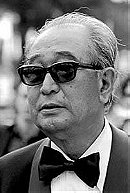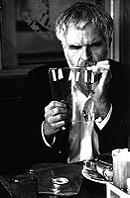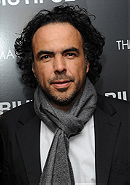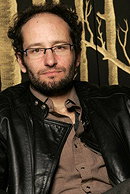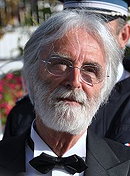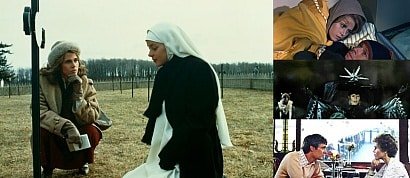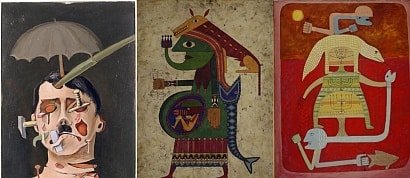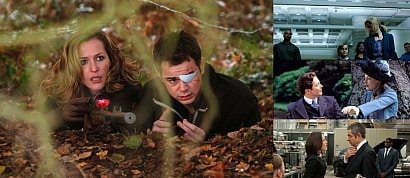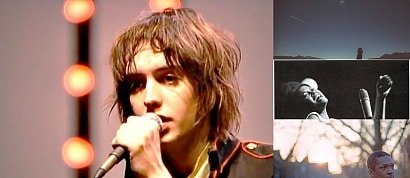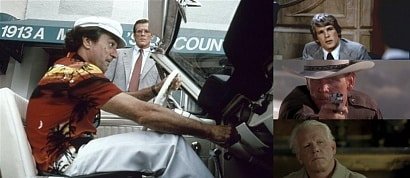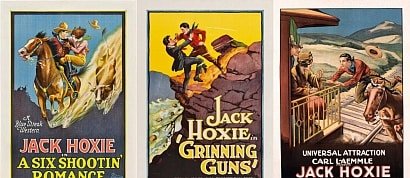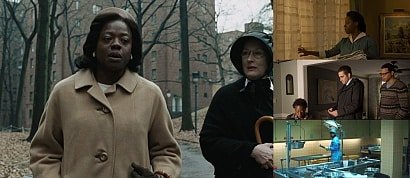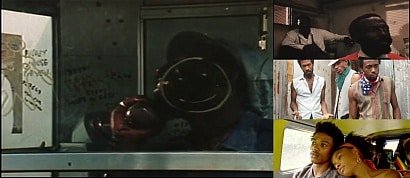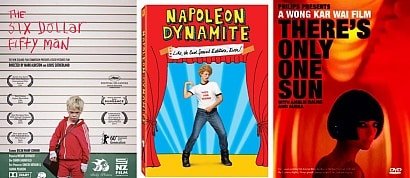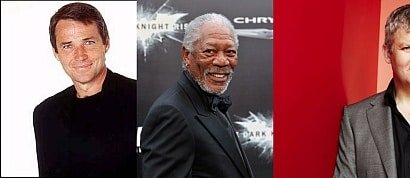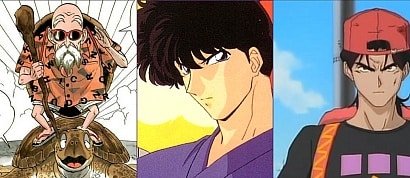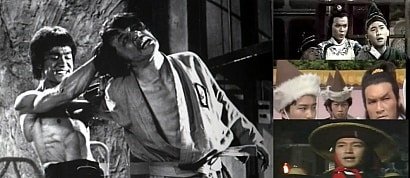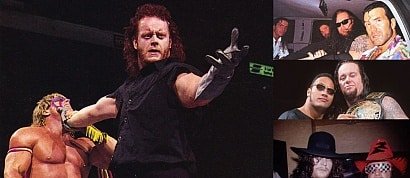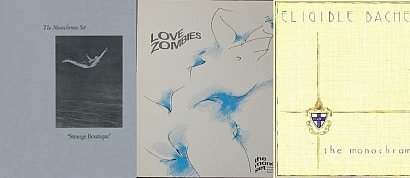In Praise of Andrei Tarkovsky
Sort by:
Showing 8 items
Rating:
List Type:

"My discovery of Tarkovsky's first film was like a miracle. Suddenly, I found myself standing at the door of a room the keys of which had until then, never been given to me. It was a room I had always wanted to enter and where he was moving freely and fully at ease. I felt encountered and stimulated: someone was expressing what I had always wanted to say without knowing how. Tarkovsky is for me the greatest, the one who invented a new language, true to the nature of film, as it captures life as a reflection, life as a dream."
"Tarkovsky is the greatest of them all. He moves with such naturalness in the room of dreams. He doesn't explain. What should he explain anyhow? He is a spectator, capable of staging his visions in the most unwieldy but, in a way, the most willing of media. All my life I have hammered on the doors of the rooms in which he moves so naturally. Only a few times have I managed to creep inside. Most of my conscious efforts have ended in embarrassing failure..."
"I love and admire the filmmaker Tarkovsky and believe him to be one of the greatest of all time. My admiration for Fellini is limitless. But I also feel that Tarkovsky began to make Tarkovsky films and that Fellini began to make Fellini films."

"Marvelous progress in science we have been enjoying, but where will it lead humanity after all? Sheer fearful emotion this film succeeds in conjuring up in our soul. Without it, a science fiction movie would be nothing more than a petty fancy.
These thoughts came and went while I was gazing at the screen.
Tarkovsky was together with me then. He was at the corner of the studio. When the film was over, he stood up, looking at me as if he felt timid. I said to him, “Very good. It makes me feel real fear.” Tarkovsky smiled shyly, but happily. And we toasted vodka at the restaurant in the Film Institute. Tarkovsky, who didn’t drink usually, drank a lot of vodka, and went so far as to turn off the speaker from which music had floated into the restaurant, and began to sing the theme of samurai from Seven Samurai at the top of his voice.
As if to rival him, I joined in.
For I was at that moment very happy to find myself living on Earth.
Solaris makes a viewer feel this, and even this single fact shows us that Solaris is no ordinary SF film. It truly somehow provokes pure horror in our soul. And it is under the total grip of the deep insights of Tarkovsky."
"I miss him dearly. He died at the age of 54. He died too young...,"
"He always looked at me with his adoring bright eyes. I will never forget the look in his amicable eyes. Both of us agreed on many things about life and film. But we are so different in disposition that our outputs are quite opposite in character. He is a poet, I am not."
"We talked with each other and agreed that a movie should not attempt to explain anything. Cinema is not a suitable medium for explanation. Those who view it must be left free to sense its content. It should be open to a variety of interpretations. However, Tarkovsky absolutely never explains, he gives no explanation at all. His thoroughness is incredible."
"His unusual sensitivity is both overwhelming and astounding. It almost reaches a pathological intensity. Probably there is no equal among film directors alive now. For instance we often see water in his films, which is portrayed in a manifold variety of expressiveness. Such is the case in The Sacrifice; one sky-reflecting pool and one without sky reflection. The camera shot the images under strict guidance from the director, whose aim was extraordinarily hard to achieve."
"You may think it is easy, but in truth it is almost impossible to catch the image and the feel of the scene on film. Japanese directors shoot nature almost absent-mindedly. There is a popular belief that the Japanese are good at filming nature, but it is not true — they are no good at all! Early films by Mikio Naruse are somewhat distinguished in this respect, although he may not have been aware of it... Most Japanese film directors are not sensitive to nature, really, are they?"
"I love all of Tarkovsky's films. I love his personality and all his works. Every cut from his films is a marvelous image in itself. But the finished image is nothing more than the imperfect accomplishment of his idea. His ideas are only realized in part. And he had to make do with it."

"Andrei Rublev is maybe my favorite film ever."
"I remember, the first time I saw a Tarkovsky film, I was shocked by it. I did not know what to do. I was shocked by it. I was fascinated, because suddenly I realized that film could have so many more layers to it than what I had imagined before."
On what inspired his film The Revenant: "I was inspired by Andrei Rublev from Tarkovsky, one of my favourite films of all time, and Dersu Uzala from Kurosawa. Also, Herzog films - Fitzcarraldo and Aguirre - and Apocalypse Now, or literature like Jack London or [Joseph] Conrad or [William] Faulkner."

"Have you ever seen a film called the “Mirror”? I was hypnotised! I’ve seen it 20 times. It’s the closest I’ve got to a religion – to me he is God. And if I didn’t dedicate the film (AntiChrist) to Tarkovsky, then everyone would say I was stealing from him. If you are stealing, then dedicate."

“When I was about 15, my father gave me a Tarkovsky film on VHS and I was amazed at the simplicity, the power that comes out of a single event. I’m not very much into narrative-driven films and I never remember dialogue; what sticks in my mind are the sound, the image and the camera movement. With Tarkovsky it’s as if direct emotion comes out of each image and sound. It drives me crazy.”

"I think you have to make films in such a way where they bear repeated screenings and each time you see something new. Otherwise the film is dead. I’ve seen Tarkovsky’s “The Mirror” at least 25 times, and each time I discover something new."

"If you want to, in my view, engage with Tarkovsky's Solaris as fully as possible, you really really need to accept at the outset that this is a film made by a devout Christian. And that's why it begins with a Bach organ choral. I'm not a Christian myself or a deist of any kind and yet Solaris, which I first saw on cinema release in 1972 when I was twelve, has remained my favourite film for my entire life. And it's always difficult with something you really love to introduce it to people."
"It (Solaris) was advertised on the cinema posters here in London as the 'Russian 2001' because 2001 had come out a couple of years previously and been a big hit. But really the two films don't bear much relation to each other."
"There is a love story in Lem's novella and the plot more or less conforms to the plot of Tarkovsky's film. The love story's quite prominent in the Lem novella but boy it's nothing like the love story in Tarkovsky's Solaris. This is not just a film made by a committed and devout Christian, it's also a film made by somebody who really believed in love. He really believed in romantic love between people and believed in the transcendent potential of romantic love."
Andrei Arsenyevich Tarkovsky (Russian: Андре́й Арсе́ньевич Тарко́вский, IPA: [ɐnˈdrʲej ɐrˈsʲenʲjɪvʲɪtɕ tɐrˈkofskʲɪj]; 4[1] April 1932 – 29 December 1986) was a Russian filmmaker, writer, film editor, film theorist, theatre and opera director. His work is characterized by unconventionally long takes, sparse dramatic structure, poetic imagery, and spiritual and metaphysical themes. He has been called a progenitor of slow cinema.
Tarkovsky's films include Ivan's Childhood (1962), Andrei Rublev (1966), Solaris (1972), Mirror (1975), and Stalker (1979). He directed the first five of his seven feature films in the Soviet Union; his last two films, Nostalghia (1983) and The Sacrifice (1986), were produced in Italy and Sweden, respectively. The films Andrei Rublev, Solaris, Mirror, and Stalker are regularly listed among the greatest films of all time.
Added to
People who voted for this also voted for
Jane Fonda Films Viewed by Kathy
TV - Seen in 2019.
ART | Victor Brauner
My Actors Viewing Lists Collection #1
Animals Eating Cactus
Favorite Japanese Female Actress
Music Diary 2020: When the Sun Goes Down
Vw Golf GTi models
Nick Nolte Films Viewed by Kathy
Western Movie Posters: Jack Hoxie
Viola Davis Films Viewed by Kathy
Under The Radar Films
Short Films
Halloween Celebrities ★
Desert Scenery
More lists from shotswerefired
In Praise of Muhammad Ali
Remarkable comebacks in sporting history
English Accents Galore
Anime's Greatest Perverts
Blink And You'll Miss Em
In Praise of The Undertaker
The Monochrome Set's Greatest Hits
 Login
Login

 8.7
8.7
 0
0
